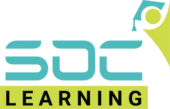In the fast-paced world of software development, productivity is critical. Programmers frequently face difficult tasks, tight deadlines, and ongoing learning. To succeed, it is vital to have the correct tools that enhance productivity and streamline operations. Whether you’re an experienced developer or just starting, these best productivity tools for programmers will help you save time, produce cleaner code, and stay focused.
Let’s look at the top eight productivity tools for programmers that will improve your coding experience.
Visual Studio Code (VS Code)
Best for: General coding, debugging, and customisation.
Visual Studio Code, or VS Code, is a lightweight yet capable source code editor created by Microsoft. It supports a variety of programming languages and provides numerous extensions that allow you to customise the environment to your requirements.
Key Features:
- Git support has been integrated for smooth version control.
- An extensive library of language, debugger, and theme extensions.
- IntelliSense is built in and allows for smart code completion based on variable types and function definitions.
- An integrated terminal allows for rapid shell access.
Why it boosts productivity: With features like live collaboration (Live Share) and an intuitive interface, VS Code helps you work faster while keeping everything in one place.
Also Read – 15 Ways to Make Money with the Help of AI
JetBrains IntelliJ IDEA
Best for: Java developers, integrated development environments (IDEs).
IntelliJ IDEA is a powerful IDE meant to increase developer efficiency, notably for Java, Kotlin, and Scala. Its clever coding assistance and productivity-boosting shortcuts make it a popular tool among many developers.
Key features:
- Smart code completion based on the context of use.
- Advanced refactoring tools for reorganising code without mistakes.
- Built-in support for version control systems such as Git and SVN.
- Smooth interaction with build tools like Maven and Gradle.
Why it improves productivity: IntelliJ’s comprehensive grasp of code structure enables developers to focus on developing rather than fixing, resulting in significantly less time spent debugging.
Slack
Best for: Team communication and collaboration.
Slack is a messaging service, but it’s an essential tool for programmers working in groups. Its structured channels, private chat, and connection with other tools enable development teams to stay in touch without drowning in emails.
Key features:
- Custom channels for various projects or subjects.
- Integration with GitHub, Jenkins, and other widely used technologies.
- Ability to automate tasks with bots and workflows.
- Simple file sharing and pinning of key information.
Why it improves productivity: Slack centralises communication, allowing you to spend more time coding rather than jumping between programs.
Trello
Best for: Project management and task tracking.
Trello is a basic yet powerful project management application built on a card-and-board architecture. It enables developers to manage tasks, track progress, and prioritise work while without overwhelming consumers with sophisticated capabilities.
Key features:
- A drag-and-drop interface allows for simple organising.
- Ability to assign tasks, create deadlines, and attach files.
- Integration with GitHub, Slack, and other platforms.
- Customisable boards to accommodate various workflows.
Why it improves productivity: Trello’s visual task management solution lets programmers break down their work into small bits while staying on track with deadlines and deliverables.
Notion
Best for: Note-taking and project documentation.
Notion is a unified workspace for notes, wikis, task management, and databases. Notion is used by programmers to describe procedures, track projects, and save code snippets and research materials.
Key features:
- Templates for project management, meeting notes, and road maps.
- Real-time collaboration for group editing.
- Flexible workspace with kanban boards, to-do lists, and calendars.
- Database integration allows you to track issues, tasks, and more.
Why it improves productivity: Notion’s adaptability enables developers to combine notes, documentation, and planning into a single platform, reducing the need for different applications.
GitKraken
Best for: Git repository management.
GitKraken is a Git client with an easy-to-use version control interface that allows programmers to manage repositories more efficiently. Its strong visualisation capabilities enable developers to swiftly move between branches and commit.
Key features:
- Visual Git commit history with drag-and-drop capabilities.
- Supports GitHub, GitLab, Bitbucket, and other Git hosting services.
- Integrated merge conflict resolution tools.
- GitFlow and Git hooks enable improved process automation.
Why it improves productivity: GitKraken’s visual interface makes Git operations faster and more straightforward, decreasing time spent managing repositories and resolving disputes.
Postman
Best for: API development and testing.
Postman is a popular API development tool that enables programmers to create, test, and debug APIs faster and easily. It is an indispensable tool for back-end developers who work with RESTful services.
Key features:
- Create and test API calls using an easy-to-use UI.
- Automated testing of collections and environments.
- Use mock servers to replicate API responses.
- Complete collaboration tools for sharing collections with teams.
Why it improves productivity: Postman reduces the need for large manual scripts by providing a simple yet powerful interface for testing APIs, hence speeding up development.
RescueTime
Best for: Time management and focus.
RescueTime is a time-tracking tool designed to help programmers understand how they spend their days. It provides thorough information on time spent on programs and websites, allowing developers to spot distractions and enhance their attention.
Key features:
- Automatic monitoring of time spent on websites and applications.
- Weekly reports that highlight productivity trends and attention habits.
- Custom notifications to notify when too much time is spent on unproductive pursuits.
- The FocusTime function blocks distracting websites during work hours.
Why it improves productivity: RescueTime offers essential insights into your everyday activities, allowing you to make data-driven decisions on how to manage your time in a better way and concentrate on coding tasks.
Conclusion
RescueTime is a time-tracking tool designed to help programmers understand how they spend their days. It provides thorough reports on the time spent on applications. Productivity is critical for programmers who must deliver high-quality code within tight timeframes. These top 8 programmer productivity tools can help you optimise your workflow, increase communication, and keep organised. Whether you’re using Trello to manage projects, IntelliJ IDEA to write faultless code, or RescueTime to measure your time, having the correct tools is essential.
Adopting these tools can increase your efficiency and improve the quality of your work, giving you more time to devote to creative problem-solving and innovation in your coding projects.
Are you prepared to take your productivity to the next level? Begin exploring.
Frequently Asked Questions
Productivity tools are valuable components in a programmer’s toolset. They improve workflow efficiency, reduce distractions, automate repetitive operations, and help manage complicated projects more effectively. While the tool landscape is large and ever-changing, some platforms have established programming community standards due to their dependability, features, and integration possibilities.
Here are some of the most popular productivity tools that programmers commonly use:
- Visual Studio Code (VS Code) – VS Code, a lightweight but capable source code editor developed by Microsoft, supports a variety of languages, including JavaScript, Python, C++, and others. It includes a large extension marketplace, IntelliSense (smart code completion), integrated Git, and debugging tools, all aimed at helping programmers code quickly and smartly.
- Git & GitHub – Version control is essential in software development, and Git is the most popular tool for it. When combined with GitHub, developers may manage repositories, collaborate on code, evaluate changes, and contribute to open-source projects. These technologies improve communication while simultaneously preserving project history and lowering the risk of code loss.
- Trello/Jira – Project management tools such as Trello and Jira are widely used for task management, bug tracking, and visualising development progress. Trello’s card-based Kanban board is simple and effective for smaller teams, whereas Jira provides thorough issue tracking and sprint planning—perfect for Agile software development.
- 4. Slack / Microsoft Teams – Effective communication is the foundation of successful programming teams. Slack and Microsoft Teams both offer instant chat, file sharing, and connection with development tools such as GitHub, Jenkins, and more. They keep everyone on track while not interfering with the coding process.
- Postman – Backend and API developers rely heavily on Postman. It simplifies the process of creating, testing, and documenting APIs. Programmers can simulate HTTP queries, arrange API collections, and even automate testing procedures—all through a simple interface.
- Docker – Containerisation has transformed the way software is produced and deployed. Docker allows programmers to package applications and dependencies into containers, assuring consistency across several settings. It eliminates the common “it works on my machine” problem and accelerates deployment and testing.
- Notion / Obsidian – Programmers frequently have to take structured notes, describe code logic, and develop technical wikis. Notion and Obsidian are good knowledge management tools. They allow markdown formatting, backlinking, and database-style structure, which is particularly handy for monitoring project specifications or writing down snippets of reusable code.
- Time Management Tools (such as Pomodoro Timers and Toggl) – Maintaining concentration is an ongoing difficulty in programming. Time-tracking tools like as Toggl and attention clocks based on the Pomodoro Technique can help programmers stay focused. These technologies divide work into digestible chunks, making it simpler to stay focused and avoid burnout.
In today’s fast-paced technology industry, being a competent programmer entails more than just writing clean code; it also entails working efficiently, effectively collaborating, and consistently producing. These typical productivity tools enable developers to maximise their time, decrease friction in processes, and meet deadlines without compromising quality.








